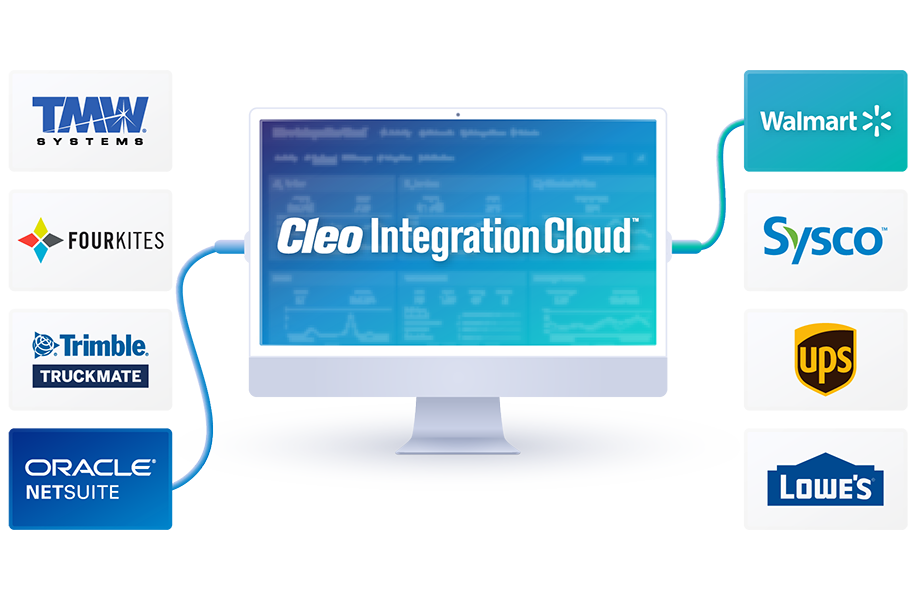Blog: How to Protect Your Business from Chargebacks

With the biggest few weeks of shopping upon us, suppliers, retailers, shippers, and logistics and transportation organizations must ensure the processes connecting them run smoothly and enable a happy holiday season. Fulfilling that mission, however, depends on fast and reliable communication to move goods, provide services, and fill orders.
Unfortunately, even in the digital age, companies still have trouble connecting and integrating their ecosystems to automate the EDI transactions that make commerce happen, and if these process failures mean they miss service-level agreements (SLAs) with their trading partners, they are assessed fines known as chargebacks.
Chargebacks are ultimately a compliance failure for not meeting SLAs, and they can be levied for various reasons. Common causes of missed SLAs could be due to infrastructure challenges, including hardware failure, connectivity issues, and manual processes. On the business process side, SLA violations happen when packages are labeled incorrectly, deliveries are late (or early), order fills are wrong, and EDI-related miscues occur, including missing purchase order (PO) data, an incorrect bill of laden (BOL), and late or inaccurate advance shipping notices (ASNs).
The answer to reducing chargebacks and the toll on your bottom line is incredibly clear: Hit the agreed-upon SLAs between you and your trading partners. But that’s easier said than done in today’s rapidly evolving business landscape.
A toy manufacturer, for instance, might sell into Walmart, Target, Amazon, and Macy’s, and it might also use various intermodal services to deliver those goods from factories, fulfillment centers, and distributors to stores and customers all over the world. If there are numerous formats required and communications protocols needed to communicate with all of them (and different systems and people charged with managing each), EDI and other data can get easily lost, misplaced, or contaminated, especially if there are manual processes involved.
The best way to avoid chargebacks in your supply chain and keep everything running smoothly at any time of year is to ensure you have the right EDI and integration technology in place to support your business demands and nurture your important ecosystem relationships.
Reduce Chargebacks with Integration
When your EDI technology isn’t reliable or runs on a delicate combination of custom code and manual intervention, it can lead to costly chargebacks to the business and a loss of credibility with your customers and ecosystem partners.
Incorrect ASNs, for example, can be a major headache. Retailers require those ASNs on-time and for them to be correct because they help automate and expedite the receiving of goods, which puts them in the warehouse faster and down the supply chain, get goods on stores shelves when they’re expected to be there.
Additionally, if retailers don’t receive the ASN on-time, then employees must manually check in the shipment, which can hold them up from other important tasks and increases opportunity costs associated with that employees’ time.
But there are a host of EDI problems that can lead to excessive fines and chargebacks from distributors. Several Cleo customers shared their experiences:
When Data Transformation Goes Terribly Wrong
Pharmaceutical manufacturer Octapharma was getting pummeled with excessive chargebacks by distributors, who would sell to group purchasing organizations (GPOs) at a different rate than the GPO contract stated and pass the chargeback on to Octapharma. So, Octapharma’s data had to help validate those distributor chargebacks, which are regulated by the FDA and must be clearly and accurately documented to maintain federal compliance.
But Octapharma struggled with unreliable data transformation that resulted in a 40 percent exception rate on its EDI workflows. To avoid millions in chargebacks every month, Octapharma’s IT teams had to spend hours manually fixing the repeated errors and incomplete data transformations.
Octapharma decided to upgrade its integration technology to support more reliable data transformations and increase visibility into its supply chain. Octapharma gained a 360-degree view of the entire operation, which helped with improved customer responsiveness, better SLA management, and drastically reduced chargebacks.
Too Much Manual Processing, Too Little Visibility
O’Rourke Sales Company is the largest fulfillment house for Dell.com, which had a stringent one-hour window for O’Rourke to update its online price list. But a manual X12 document conversion process put O’Rourke at risk of missing that upload window, Dell product prices being off the next day, and thus, costly chargebacks. Additionally, O’Rourke didn’t have visibility into why other file transfers failed and only heard about their absence when trading partners came calling.
These errors added up quickly, to the tune of $100 per error, per file. That’s when O’Rourke decided to upgrade its integration technology to automate data transformation, better integrate its FTP, SFTP, and AS2 transactions, and improve its agility in serving its customers. In total, Cleo Integration Cloud saved O’Rourke up to $100,000 a year in chargeback fees.
Staying Compliant to Avoid Chargebacks
When your EDI and integration technology is not set up to automate your critical ecosystem interactions and integrate into your IT stack, your revenue-generating workflows are driven by manual processes, which are more likely to lead to data errors, processing delays, and business chargebacks.
Your incumbent legacy systems might be able to mostly execute the data exchanges, but are they providing the data transformation, data movement, and data visibility that will help your business stay compliant on its SLAs? Reduce the risk of costly chargebacks, SLA fines, and government mandate penalties with the processing, control, and governance capabilities that modern business demands.
Cleo Integration Cloud delivers the tools to secure, control, and manage data flows and handle complex requirements, streamline your EDI workflows, and ensure you meet your important ecosystem SLAs. Anything less and you risk heavy fines, customer churn, and a tarnished brand reputation.

About Cleo

Watch a Demo

Comprehensive Guide to Gaining B2B Control

Duraflame Case Study
